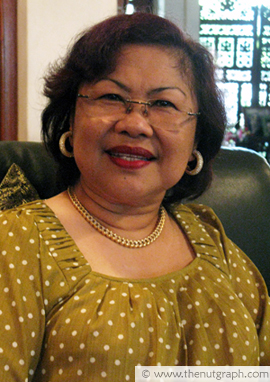
TAN Sri Rafidah Aziz, 68, has been a towering figure in Malaysian politics for the past three decades. Born in Selama, Perak, in 1943, she became at age 30 Member of Parliament for Kuala Kangsar, and remains the incumbent. In 1987, she was appointed international trade and industry minister.
Her political career has not been without its challenges. In 1996, she was defeated, by a razor-thin 12 votes, by Datuk Dr Siti Zaharah Sulaiman for the Wanita Umno leadership. She wrested the post back in 1999, only to lose it again 10 years later to Datuk Seri Shahrizat Abdul Jalil. In addition, after the watershed 8 March 2008 elections, which saw the Barisan Nasional (BN) lose five state governments and its parliamentary two-thirds majority, Rafidah was dropped from then Prime Minister Tun Abdullah Ahmad Badawi’s cabinet.
In this exclusive interview, held on 9 March 2010 in Kuala Lumpur, Rafidah shares her memories, experiences and hopes for Malaysia.
TNG: Can you trace your ancestry?
Rafidah Aziz: I can, actually. My mother’s grandfather was from Sumatera. He was of royal lineage from Rawa, Sumatera. He came and opened up Selama, and our family history is in the Taiping museum. [He] did away with all his titles when he came over to Semenanjung Tanah Melayu.
Both my mother’s and father’s sides came from Sumatera. That’s why I said I get very upset when people start talking about, for example, Chinese or Indian [Malaysians] in the context of “pendatang”. I say, “I am a pendatang myself if you look at it that way.”
You were born at an interesting time — you grew up during Merdeka and when Malaysia was formed.

Yes, I was almost 14 when it was Merdeka day. And I won the Education Department prize in a state-wide essay competition for an essay on Malaysia’s formation when I was in Form Six in 1962. And interestingly I became a senator at 30. So, you can see, I lived independence.
My father was one of the first Malay graduates from the agriculture college in Serdang, which is now Universiti Putra Malaysia. That was really an achievement for the family. It wasn’t easy for him, since we were not from an aristocratic family. My grandfather was no longer an aristocrat in Malaya.
My father was also hot-tempered and worked off and on. He would resign, giving 24 hours’ notice, and then we were left quite stranded, depending how long it would take for him to find another job. My mother would cry and ask, “Why did you resign?” And he would say, “I couldn’t stand them.”
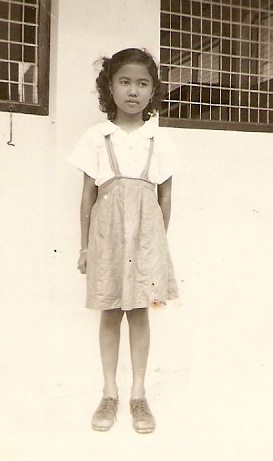
You see, his employers were mostly orang putih, and my father had this attitude [where he thought], “Don’t you dare make us feel so low.” Because he was qualified, you see. And maybe the orang putih were bosses who really expected you to kow tow to them, I don’t know. I think my father just didn’t like that attitude — he just wanted to be treated equally.
So there were times during Hari Raya when we were okay, we got baju baru. But sometimes we were not okay.
So I learnt to go to market at six years old. I was already doing the groceries for my mother, you know, making lists of things to buy in the buku tiga lima. On Sundays, there I was carrying the basket, you know the bamboo raga, walking down Chow Kit road, alone, going to buy ikan kembung.
Among all the places that you spent your childhood in, is there one particular place that stands out?

Yes, Kelantan. Kelantan, at that time, was as far flung as you could possibly be. That’s where I suppose I learnt that the city is not everything. We learnt to appreciate the greenery. That’s why in Kelantan I learnt to appreciate things, like gardening.
And we had domestic science, which is very important for girls, where you really learn the basics. How to cook. One day it’s masak nasi, jerang air, buat teh, telur rebus. Simple, not all the kari stuff. And then, sewing. How to sew, how to mend, how to patch, how to make stockings. So now, I can do all that. I can sew pants, not a problem.
In other words, school at that time germinated, in women and girls, the interest in homemaking. Can you imagine? You can’t say, “I can’t cook.” That’s a lie. At least in those days. Today, it’s true. Because they don’t even go to the kitchen. The school doesn’t expose them to do any of this. They can’t even stitch to save their lives.
So do you think younger Malaysians are missing out on something?
They won’t miss because they don’t know. But to me, they have not been exposed to some of these basic things in life. For example, now people talk about sex education. You shouldn’t talk about sex education per se. We were given sex education, but it was called “sociology”. There was a reference book, and it was all about basic manners. Ethics, etiquette, values.
And later on in the term, the topic would go on to adulthood. For example, you were told you can have many friends, including boys. These are your boyfriends. But you will only marry one. And you keep yourself pure before marriage. They don’t tell you about “sex” as such. In fact, we also might not have wanted to listen if it talked about sex. And you remember these things because it’s so relevant. Respect your parents, don’t neglect your parents. It’s all there! I feel like writing a sociology book myself.
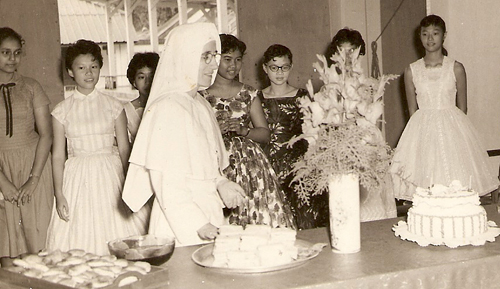
Tan Sri, you are so no nonsense; in fact, some call you Iron Lady. How did your first date go with your husband?
It was at a friend’s birthday party, and it was at a house in PJ. I was in school, Lower Six. He was in UM, first year. We were both invited separately. Then, I was dancing with someone and when I looked for my seat it was taken. I then sat next to him. We introduced ourselves.
Later he asked me for my phone number. At that time, we were living in PJ. He wrote down my number in the sand outside his brother’s house. I told him later, “How stupid can you be? If the rain comes, habislah.” And he replied, “Mmm. No more communication, because I cannot remember your number.”
Most of the time he came to the house. I told him to come, and introduced him to my parents. And I would not dress up just because he was coming. He would come after dinner, because he had lectures sampai malam, and the next day I’d have to go to school. I would be in my [bedclothes], with Nixoderm on every pimple, and my hair would be tied in two. My mother would say, “Why are you like this?” I said, “Well, he has to see me as I am, you know? Takkanlah with makeup only?” She couldn’t believe it.
But then he would come and he wouldn’t say a word. He understood that this woman wasn’t going to dress up and wear lipstick just for him. Of course when we went out, I would dress up. But in this case, I would be getting ready to sleep and he would come so late. (Laughs) I have school tomorrow, you know? You come at 9.30, I am about to sleep already! So you see my reasoning? See me as I am. Like it or don’t like it.
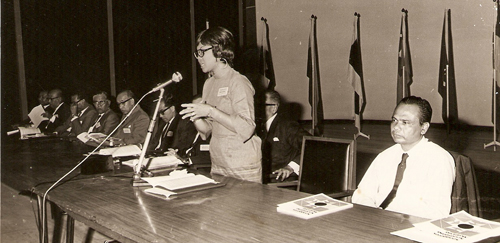
So you have always been like this?
Yes. (Laughs) You want to know me, that’s it lah. Not just the nice me. That’s why I said, [I don’t] “play” a role. No. I assume my role.
Is there anything about yourself that you struggle with, as a Malaysian?
We don’t make it an effort to say, “I’m Malaysian,” and to explain Malaysia to the world. When I went abroad, and terrorism was in the [spotlight], they would ask me, “We understand Malaysia is a Muslim country. Are there terrorists there?” And then I’d have to explain.
But then I’m so glad that they could understand it and that I got reported on widely in the American newspapers. In fact there [was] one big write-up and (former Prime Minister) Tun (Dr) Mahathir (Mohamad) congratulated me for it because someone sent it to him. Because I said things like, “Look, please don’t misunderstand Muslims. Your idea of Muslims is the Taliban, it’s Osama bin Laden.” I said, “Here’s my Muslim ambassador. Does he look like Osama bin Laden? He’s so handsome.” And I said, “Look, and I’m not in a burka. I’m Muslim, you know?”
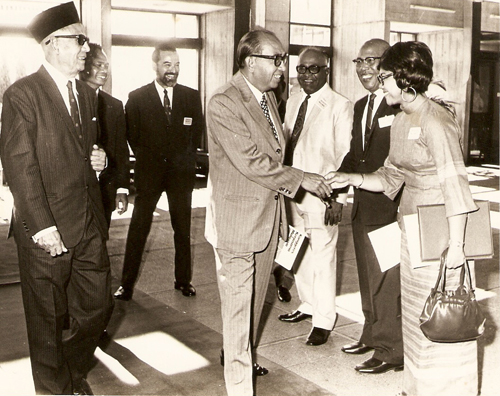
Do you think it’s the direction now, though, that people are pressuring women to keep to certain “religious” standards?
Not really. You see, some people are always “playing roles”. Some want to appear to champion religion, or to appear to be epitomes of holiness. There are adulterers who cover up. There are marital breakups involving women who cover up. They are human. Comes a minister who is very liberal, then we will have men with long hair. Last time kena potong, remember Tok Mat (former information minister, the late Tan Sri Mohamed Rahmat)? So this is “playing a role” when you are a Malay [Malaysian] minister. They will think of party elections.
Do you think Malaysia is ready for a woman prime minister?
A prime minister is someone who leads the winning party, whether it’s a man or woman, it doesn’t matter. There will be a woman PM in Malaysia when a woman succeeds in becoming the president of the party which has the largest number of seats in Parliament. Now we wait for the time when a woman really wants [the] hassle [of getting] that top party post.
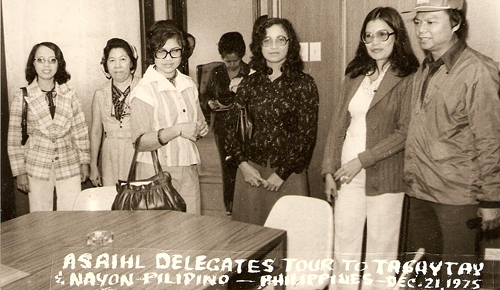
Even in Parliament there’s not even 30% women MPs.
It’s not important because Parliament is not the true representation. You know why? You have political parties, and the parties have their own criteria and quotas. If MIC is given so few seats, no way can you expect many women to be there. Even in Umno you can’t put any number of women as you like. If you are given only six seats, surely you defer to the six top bosses first.
To me, MPs don’t make policies. The ones who make and shape policies are civil servants, guided by the ministers, or ministers and civil servants, together, formulating and implementing policies.
Now there are so many women bosses in the civil service. And if they filter up the right guidance and advice to the ministers, we will get the right policies. And ministers shouldn’t be political in the way, you know, [of] playing personal politics. And there must be gender sensitisation in policies and programmes.
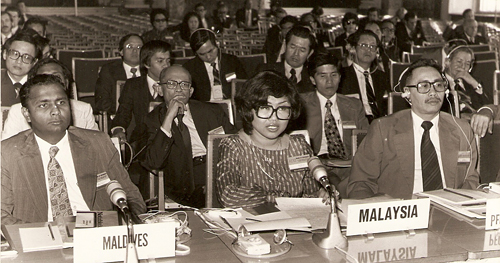
Can you describe or visualise the kind of Malaysia you’d like to leave for your grandchildren and their grandchildren?
I would like to have a Malaysia where people who are Malaysian feel this is their country and not, at the slightest disruption or reverberation somewhere, leave the country.
If you’re a mother, teach your children good values. Don’t ask your children, “Who are your friends? Melayu, Cina or India?” Parents like that are useless.
And then I’d like to have Malaysians who think about national interest, not in a political way, but who do their own little bit for the country. For example, making their home environment conducive to studying so their children can grow up to be assets to the nation. No need to go around carrying the Malaysian flag, or have your flag emblazoned on your baju!
You know, like 1Malaysia now. I hate it when people attach “1Malaysia” to everything. 1Malaysia [on its own] is good enough. Don’t have to go touting it: 1Malaysia restaurant, 1Malaysia baju, 1Malaysia karipap, 1Malaysia roti canai. You will dilute the whole thing and you will make nonsense of it. ![]()
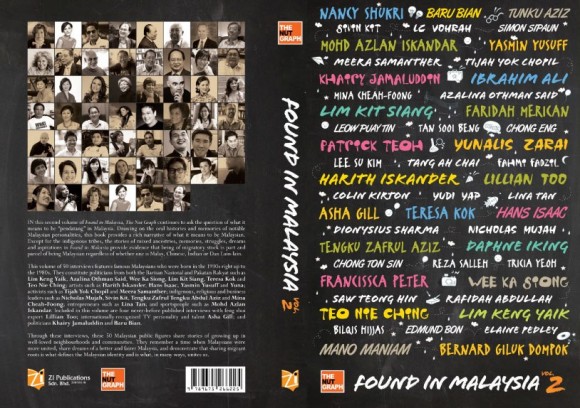 Found in Malaysia Volume 2, which was launched on Malaysia Day 2011, is now available in bookstores for RM50. It features previously unpublished interviews with Asha Gill, Lillian Too, Khairy Jamaluddin and Baru Bian. Volume 1 of Found in Malaysia, featuring 54 earlier interviews, is currently in its second print run and retailing at RM45. The above interview with Rafidah Aziz was first published exclusively in Volume 1.
Found in Malaysia Volume 2, which was launched on Malaysia Day 2011, is now available in bookstores for RM50. It features previously unpublished interviews with Asha Gill, Lillian Too, Khairy Jamaluddin and Baru Bian. Volume 1 of Found in Malaysia, featuring 54 earlier interviews, is currently in its second print run and retailing at RM45. The above interview with Rafidah Aziz was first published exclusively in Volume 1.


ALVIN says
The prime mnister we never had. Our loss!
farha says
I like her answer to the question about her first date with her husband. So classy, unassuming and alluring too! It beats the current times where relationships now are superfast, defined by gizmos such as iPhone/iPad and social networking sites like FB. Food for thought.
Ibrahim Moin says
The ideolgy that Tan Sri Rafidah carries makes her a true Malay woman leader who can hardly be compared to other leaders I have known. People perceived her as an “iron lady”.
To me, that is the quality that made her successful.
Perhaps the current women leaders should learn from her.